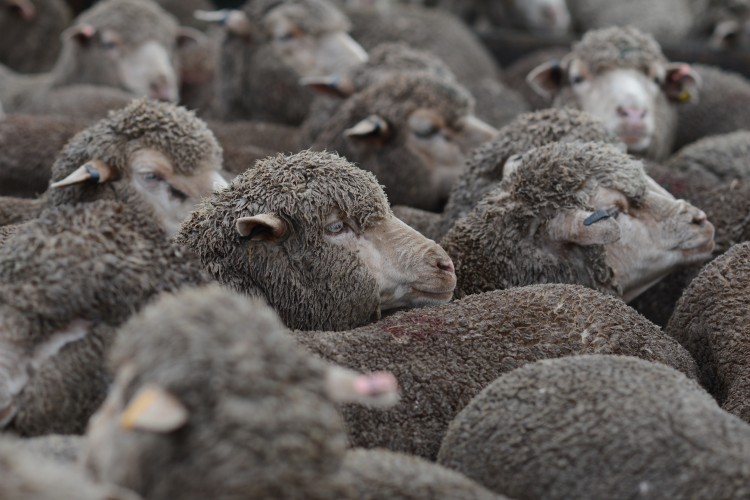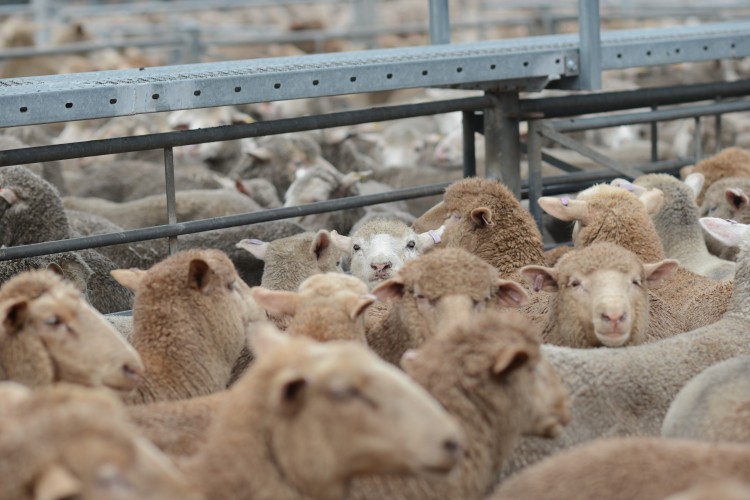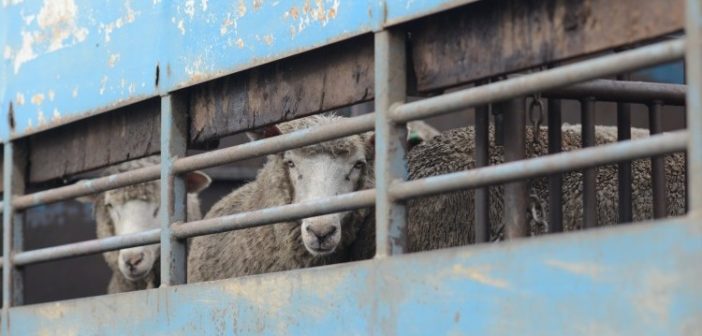On Friday, October 4th, sorrow and anguish filled South Africa’s East London Harbor as inspectors watched the last sheep being loaded onto the Al-Shuwaikh vessel, along with an estimated 57,000 other sheep destined for the Middle East for inhumane slaughter. There were inspectors from Societies for the Prevention of Cruelty to Animals (SPCAs) and the South African National Council of SPCAs (NSPCA) monitoring the loading at the feedlot and on the harbor during the entire process.
Inspectors worked tirelessly from early morning until late at night, monitoring the loading of these sheep on October 1st and 2nd, finally working a 27 hour shift from October 3rd until the morning of October 4th, when the last sheep was loaded.
“We were standing on the harbor after a final inspection of the vessel was undertaken. The atmosphere and sheer devastation was suffocating, we all knew what it meant for the sheep on board. However, the evidence collected over the last four days will protect millions of animals from ever being loaded onto these death ships in the future,” said Meg Wilson of the NSPCA.

Dr. Molefe, the Director of Veterinary Public Health of the Department of Agriculture, accompanied the NSPCA’s veterinarian and a Senior Inspector on an inspection of the vessel. Dr. Molefe appeared to be horrified at the conditions on board the ship, including dangerously high ammonia levels on some of the decks and parasitic conditions including feces in food and water troughs, among other serious concerns. This was only on day two of the loading; the sheep still have to endure worsening conditions for their entire journey. Curiously, later that day, two veterinarians from the provincial government department undertook an inspection and advised our inspectors that nothing was wrong.
The loading process continued throughout the night of October 3rd. The NSPCA appealed to the provincial government representatives to put a stop to the loading, as animals were being manhandled as a result of exhausted handlers and dark conditions, but the intransigent government officials stood by and did nothing.
The NSPCA called upon Dr. Shawn Morris, an experienced veterinarian and feedlot expert in South Africa, to attend an inspection of the loading site on the harbor, as well as the vessel itself, following the NSPCA’s horrific findings on board the vessel and during the loading process.
“Having had an opportunity to attend the loading of the Al-Shuwaikh on Thursday evening and having been granted access to the vessel itself, it was evident that the Department of Agriculture, Land Reform and Rural Development’s (DALRRD) lack of concern, and more importantly, their absence at the loading point as well as on the vessel (save for short periods of time), are of serious concern,” said Dr. Morris. “I would describe the role of DALRRD as nothing more than window dressing.”
The NSPCA asked Dr Morris to describe this shipment, and others like it, using one word. His response was “disaster.”

The only authority in attendance during the entire loading operation at both the feedlot and on the harbor was the NSPCA, with the assistance of Eastern Cape SPCAs. These organizations’ personnel, including their veterinarian, worked around the clock to ensure that no sick, injured or lame animals were loaded. This is clearly a role that should have been fulfilled by DALRRD veterinarians, especially if welfare was a primary concern.
“Our authorities, in my opinion, have not given enough thought and consideration to the problem at hand and have certainly not applied their minds when it comes to the welfare of the animals,” explained Dr. Morris. “They should do the right thing and not simply turn a blind eye when it comes to animal welfare.”
The NSPCA will be filing charges against the South African government, based on the Animal Protection Act of 1962. They will also be bringing animal cruelty charges, assault charges and multiple charges of obstruction against the personnel who handled animals inhumanely and assaulted and hindered NSPCA inspectors from fulfilling their duties.
Furthermore, the NSPCA will take the necessary legal actions to ensure that there is an end to the unacceptable and unnecessary cruelty involved in the live export trade.
“Seeing the suffering of these sheep even before their departure, and watching the Al-Shuwaikh depart has been heartbreaking, but it has also affirmed our determination. We may have lost this battle, but we have not lost the war. We will do everything in our power to ensure that no animal is ever loaded on board these death ships again,” said Wilson.
Featured image: sheep look out from a sale yard. Image credit Jo-Anne McArthur / We Animals, CC BY-SA 2.0.





